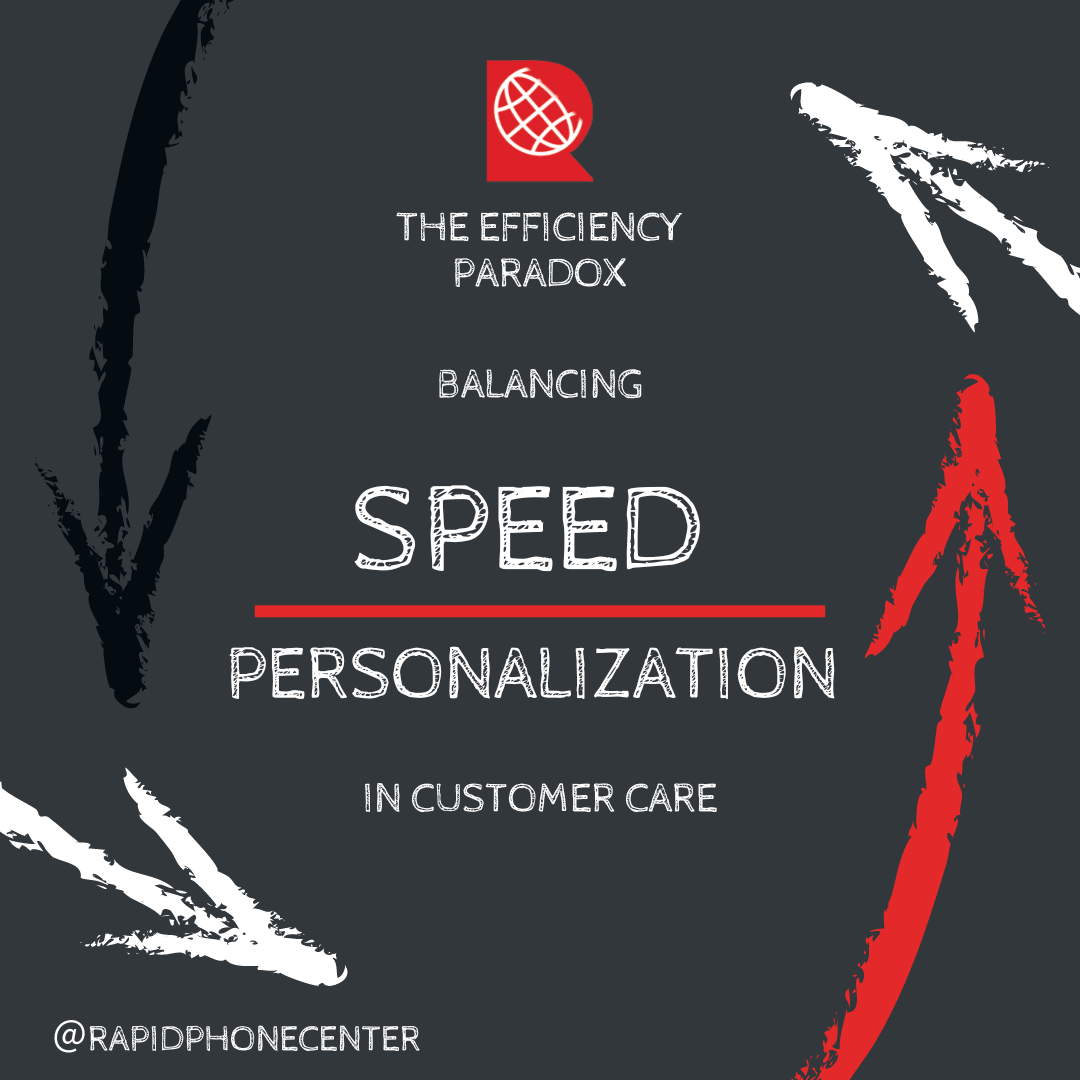The Efficiency Paradox: Balancing Speed and Personalization in Customer Care

The Efficiency Paradox: Balancing Speed and Personalization in Customer Care
“Efficiency and personalization: two sides of the same coin in the realm of customer care.”
In the competitive landscape of customer service, the challenge of balancing efficiency with personalization is a common struggle for many businesses. This balance is crucial; customers demand quick responses yet also expect a personalized experience that makes them feel valued. Rapid Phone Center faced this very challenge, and their journey serves as a compelling case study in overcoming the efficiency paradox.
Our company recognized that while automated systems could handle inquiries rapidly, they often lacked the nuanced understanding that only human interaction could provide. To address this, at Rapid Phone Center we implemented a dual approach: utilizing AI for handling routine tasks and freeing up human agents to focus on complex, personalized customer interactions. This strategy allowed us to maintain high efficiency without sacrificing the personal touch.
A key element of our success was the integration of advanced CRM systems. These systems provided a comprehensive view of each customer, enabling agents to deliver service that was both quick and customized. Agents had access to customers’ previous interactions, purchase history, and preferences, allowing them to tailor their approach and build stronger relationships.
Training was another critical component. at Rapid Phone Center we invested in extensive training programs that equipped our agents with the skills to use technology effectively while also nurturing their communication and empathy skills. This empowered agents to discern when to expedite a call and when to invest more time in understanding and resolving a customer’s issue.
The results spoke for themselves. Customer satisfaction scores soared, and the company saw a marked increase in customer loyalty and retention.
The feedback was clear: customers appreciated the swift service, but it was the personalized attention that turned them into advocates for the brand.
“At the intersection of speed and personalization, Rapid Phone Center found the sweet spot for customer care excellence.”
In the final analysis, the journey of Rapid Phone Center in mastering the efficiency paradox serves as a testament to the power of innovative solutions in the face of industry challenges. Our company’s strategic approach to integrating AI with human expertise has not only streamlined operations but also enhanced the customer experience, proving that efficiency and personalization can indeed coexist harmoniously.
Our success underscores a vital lesson for businesses in all sectors: the importance of adaptability and continuous improvement. By embracing new technologies and investing in their people, companies can create a dynamic customer service environment that is both fast and personable. This balance is not just about meeting expectations; it’s about exceeding them and setting new standards in customer care.
As we consider the broader implications of this case study, it’s clear that the efficiency paradox is not a hurdle to be overcome but an opportunity to innovate and grow. It challenges us to think differently, to break away from traditional service models, and to build systems that are as responsive as they are considerate.
Reflecting on this case, how does your business navigate the efficiency paradox?
Have you found innovative ways to deliver quick yet personalized service? Share your experiences and join the conversation.




